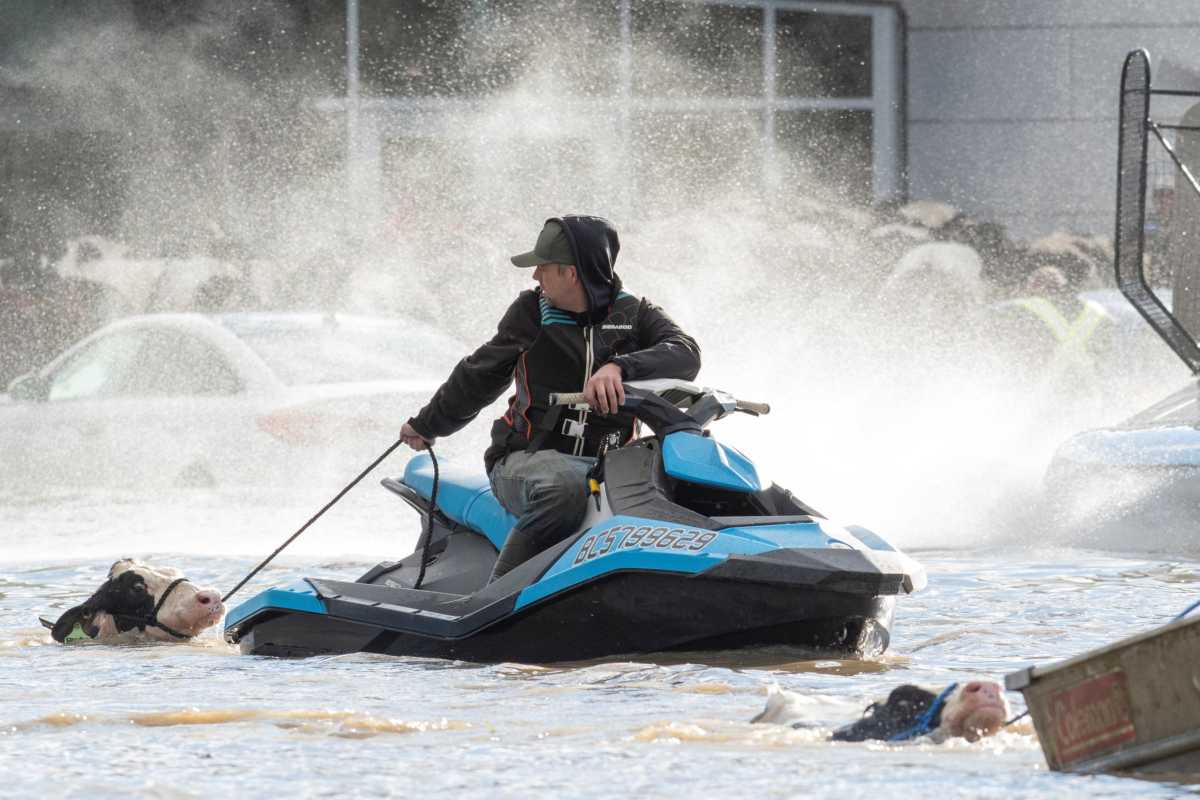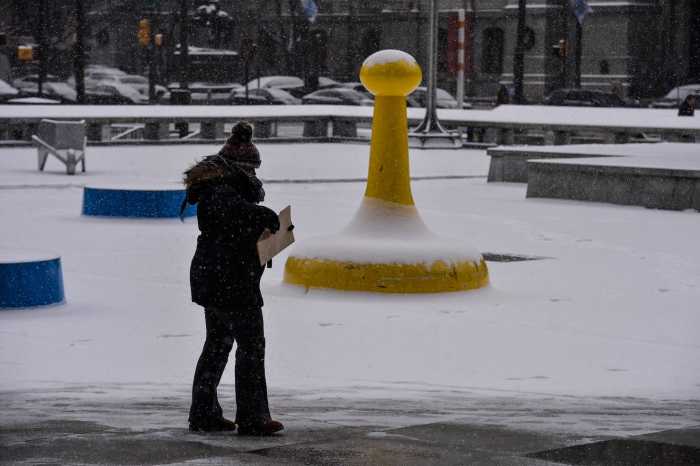By Jesse Winter
ABBOTSFORD, British Columbia – The death toll in Canada from massive floods and landslides that devastated parts of British Columbia is set to rise, with the province declaring a state of emergency on Wednesday.
Authorities have confirmed one death after torrential rains and mudslides destroyed roads and left several mountain towns isolated.
“We expect to confirm even more fatalities in the coming days,” Provincial Premier John Horgan said. “We will bring in travel restrictions and ensure that transportation of essential goods and medical and emergency services are able to reach the communities that need them.”
The massive floods and mudslides also severed access to the country’s largest port in Vancouver, disrupting global supply chains already struggling to deal with problems caused by COVID-19.
In Tulameen, a mountain town to the northeast of Vancouver, up to 400 people are trapped, many without power, said Erick Thompson, a spokesman for the area’s emergency operations.
“(We) did a helicopter flight recently, dropped off food, and what is underway right now is to determine what additional supplies may need to come into that community,” he told the Canadian Broadcasting Corp.
Some of the towns are in more remote mountain areas with limited access and freezing temperatures, making them more vulnerable.
In Hope, 100 miles (160 km) east of Vancouver, food was starting to run low. Pastor Jeff Kuhn said a quarter of the town’s 6,000 residents were seeking shelter.
About 100 volunteers at the Dukh Nivaran Sahib Gurdwara Sikh Temple in Surrey spent all night Tuesday preparing about 3,000 meals and then hired helicopters to deliver the food to Hope, said President Narinder Singh Walia.
“We don’t want anyone to sleep hungry,” he said by phone, adding that volunteers were planning to make another 3,000 meals Wednesday night.
The disaster could be one of the most expensive in Canadian history.
Canadian exporters of commodities from grain to fertilizer and oil scrambled to divert shipments away from Vancouver but found few easy alternatives.
After a phenomenon known as an atmospheric river dumped a month’s worth of rain in two days, officials are concerned that another downpour could overwhelm a pumping station near Abbotsford, a city of 160,000 to the east of Vancouver, which has already been partly evacuated.
Mayor Henry Braun said the station was running at full capacity. Volunteers built a dam around the station overnight, he said.
“That will buy us some more time but if we had another weather event like we just went through, we are in deep doo-doo (trouble),” he told reporters on Wednesday.
Farmers in Abbotsford ignored an evacuation order on Tuesday and desperately tried to save their animals from rising waters, in some cases tying ropes around the necks of cows and pulling them to higher ground.
Environment Canada said Abbotsford would receive more rain early next week.
Rescuer Mike Danks, part of an Abbotsford evacuation team, said the situation had been very tough.
“The majority of people had elderly parents with them that were unable to walk, suffered from dementia,” he told local outlet Black Press Media.
“You’re trying to assist them into a helicopter at night, bringing only a very small amount of stuff.”
In Mission, to the east of Vancouver, some emergency staff are stuck in their own homes, said Mayor Paul Horn.
“All of the five roads into this area … are blocked and that’s making it very challenging to get goods in and out of the area,” he told CBC.
Prime Minister Justin Trudeau, while in Washington on a trip, said Ottawa would help the province recover from what he called a “terrifically bad situation”.




























